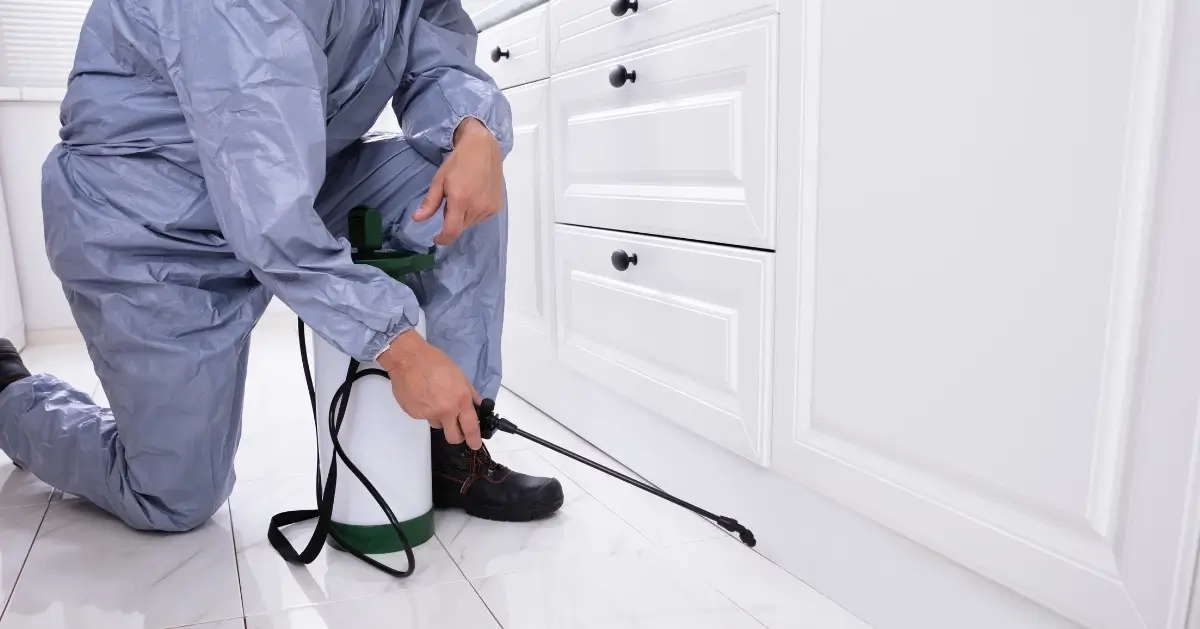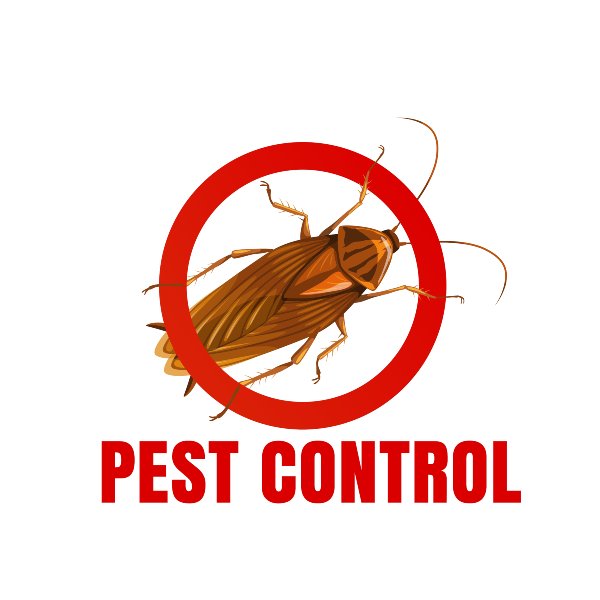Comprehensive Solutions for Chicago Pest Control for Restaurants: Maintain Your Establishment Pest-Free
Discovering Numerous Approaches and Strategies for Comprehensive Parasite Control in Residential Spaces
The landscape of parasite control in property spaces has actually evolved dramatically, necessitating a thorough understanding of different methodologies that can be utilized for reliable management. Standard chemical treatments, while efficient, are significantly being complemented by green alternatives and Integrated Bug Monitoring (IPM) techniques.
Recognizing Pest Control Fundamentals
Efficient pest control is necessary for maintaining a safe and healthy living atmosphere. Recognizing the basics of insect control includes identifying the kinds of insects that commonly invade property areas, the possible threats they pose, and the significance of safety nets. Usual household insects include rodents, bugs, and other unwanted creatures that can jeopardize hygiene, damage property, and set off health and wellness problems.
An essential initial action in pest control is identifying the specific pests existing. This can entail inspecting areas such as kitchen areas, attics, and basements, where parasites are most likely to prosper. When determined, it is vital to comprehend their practices, breeding cycles, and preferred atmospheres, which can educate proper control strategies.
Safety nets are essential to efficient pest monitoring. These include sealing entry factors, preserving cleanliness, and reducing mess to get rid of concealing areas. Additionally, correct food storage and waste monitoring can dramatically reduce the attraction of a home for bugs.

Standard Chemical Therapies
Among the different bug control approaches, conventional chemical treatments have actually long been used to attend to problems in residential spaces. These treatments generally involve the application of chemical pesticides designed to eliminate insects such as insects, rodents, and other undesirable microorganisms. The performance of these chemicals can differ, relying on the kind of bug, the formula of the pesticide, and the method of application.
Usual courses of standard chemical therapies include insecticides, fungicides, herbicides, and rodenticides, each tailored to combat details bugs. Insecticides, as an example, might target roaches, ants, or termites, while rodenticides are particularly formulated to regulate rodent populations. These chemicals are frequently available in numerous types, including sprays, lures, and granules, enabling property owners flexibility in application.
Regardless of their efficiency, conventional chemical therapies increase concerns pertaining to prospective toxicity to human beings, animals, and useful microorganisms in the atmosphere. Therefore, it is critical for property owners to carefully comply with application standards and security preventative measures to reduce threats. Integrated Bug Management (IPM) methods can enhance these treatments, making sure an extra holistic technique to pest control while taking full advantage of efficiency and safety and security in property setups.
Eco-Friendly Pest Control Options
Environment-friendly pest control options are getting appeal as home owners seek much safer and a lot more lasting choices to traditional chemical treatments. These approaches prioritize the health of both locals and the atmosphere, lessening the influence of parasite control practices.
One widely adopted environmentally friendly technique is making use of all-natural repellents stemmed from essential oils, such as peppermint and citronella. These oils not just hinder bugs however also provide pleasurable aromas for interior areas. Moreover, diatomaceous planet, a powder made from fossilized algae, works as a natural insecticide by harming the exoskeletons of pests upon contact, leading to dehydration.
One more efficient technique involves advertising biodiversity in yards and backyards. Introducing advantageous insects, such as ladybugs and lacewings, can normally manage pest populations (Preventative pest control services Chicago). Additionally, employing catches made from eco-friendly materials can help record and eliminate pests without creating damage to the environment
Regular upkeep, such as sealing entry factors and correct cleanliness, further boosts the effectiveness of environmentally friendly pest control. Home owners can take positive steps to avoid problems, guaranteeing an extra sustainable living setting Chicago wasp nest removal while successfully managing pest-related problems.
Integrated Insect Management Methods
Implementing incorporated pest administration (IPM) strategies uses a comprehensive technique to pest control that emphasizes prevention and long-term remedies. IPM integrates several tactics, concentrating on recognizing pest habits, life process, and ecological dynamics to decrease pest populations properly. This multifaceted method prioritizes non-chemical techniques, such as organic control, environment manipulation, and cultural methods, to lower reliance on pesticides.
A foundational facet of IPM is keeping an eye on and identifying bugs properly. This involves regular inspections and the establishment of action limits to identify when intervention is needed. By comprehending the certain parasites affecting domestic atmospheres, targeted treatments can be used, lowering the likelihood of unnecessary pesticide applications.
Another vital part of IPM is enlightening homeowners about the importance of sanitation and maintenance techniques. By cultivating a setting that inhibits parasite problems-- such as securing access factors and handling wetness-- citizens can dramatically minimize the threat of pest problems. Additionally, when chemical controls are regarded essential, IPM supporters for the usage of the least hazardous choices to reduce environmental influence. Through these approaches, IPM not just addresses present pest concerns yet likewise promotes sustainable practices that advertise long-lasting pest management success.
Preventative Steps for House
To fend off possible insect problems, property owners need to embrace an aggressive method that stresses preventative measures. This begins with keeping a clean and orderly home, as mess and food debris draw in parasites. Chicago wasp nest removal. Frequently vacuuming, sweeping, and cleaning down surface areas can considerably minimize the threat of infestations
Additionally, sealing access factors is critical. House owners need to inspect windows, doors, and foundation fractures for voids that can allow insects access to the home. Using caulk and climate removing can effectively block these entryways.
Proper food storage is an additional important action. Keeping food in airtight containers and immediately tidying up crumbs or spills aids hinder rats and pests.
Moreover, managing outdoor settings can protect against pests from elbowing in on property areas. Property owners need to ensure that drain systems are working well, and landscape design is kept clean. Cutting trees and hedges far from the residence and getting rid of standing water can additionally decrease insect habitats.

Conclusion
In conclusion, efficient parasite control in domestic areas demands a multifaceted technique that incorporates conventional chemical treatments with environmentally friendly techniques and Integrated Pest Monitoring approaches. By prioritizing preventative steps, such as preserving sanitation and securing entry points, property owners can dramatically reduce insect incidents.
Comprehending the fundamentals of parasite control entails identifying the kinds of parasites that generally invade residential spaces, the potential risks they position, and the significance of precautionary procedures.A critical first action in parasite control is identifying the specific pests present. Integrated Pest Management (IPM) approaches can enhance these therapies, ensuring an extra all natural strategy to pest control while taking full advantage of effectiveness and security in domestic settings.
Implementing integrated parasite monitoring (IPM) methods provides an extensive approach to pest control that emphasizes avoidance and long-lasting services.In conclusion, effective parasite control in property areas necessitates a complex strategy that integrates traditional chemical treatments with green techniques and Integrated Bug Management strategies.